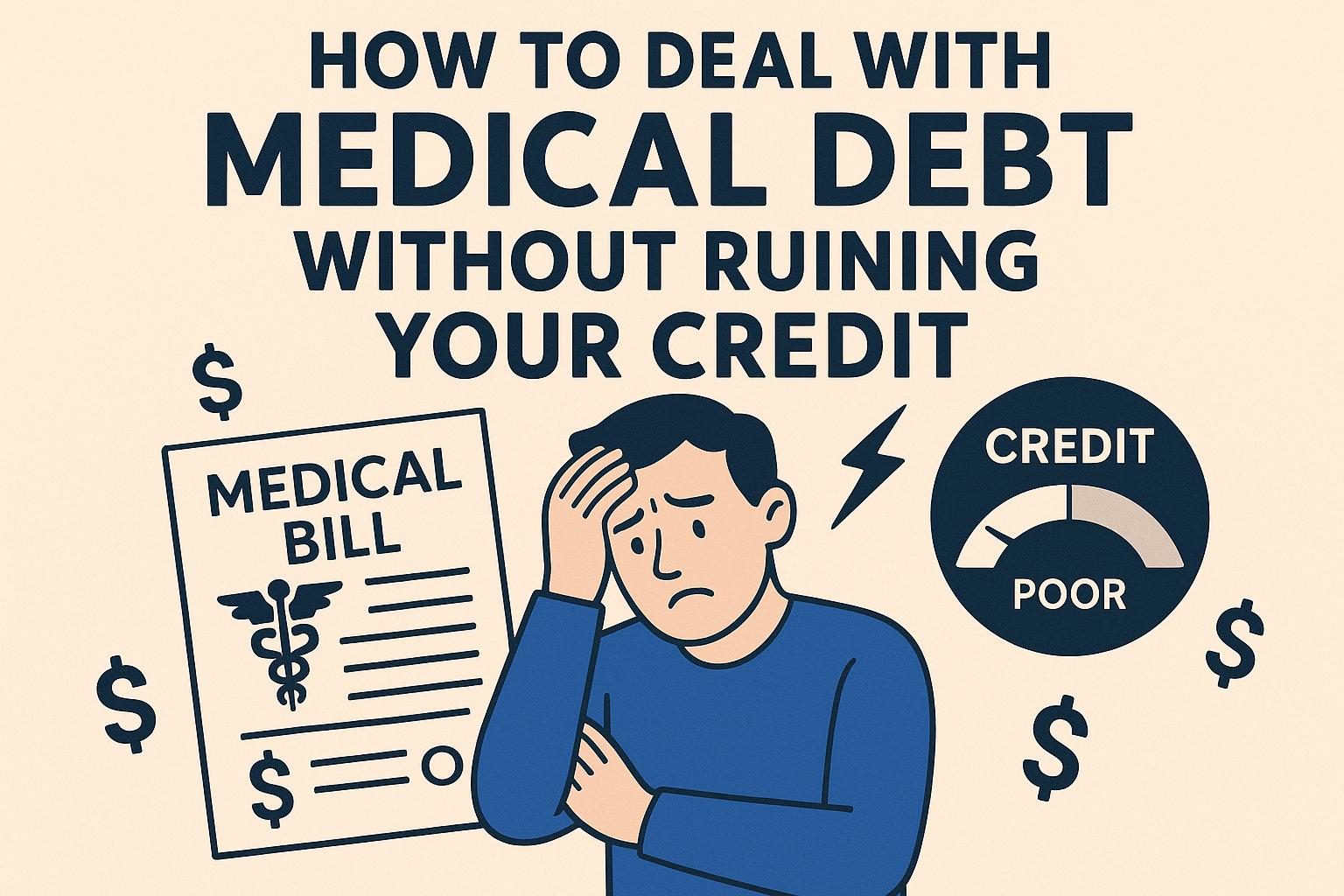Understanding Medical Debt and Its Impact on Credit
Medical debt is an issue that touches the lives of many, often unexpectedly leading to a significant financial burden. With healthcare costs rising, even those who are insured can find themselves facing large medical bills. Efficiently managing these debts is crucial, particularly because of their potential impact on your credit score. While medical debt differs from other types of debt due to the nature of its incurrence, it still ultimately affects your financial health when unpaid bills are handed over to collection agencies. This document will provide a detailed exploration of how medical debt affects credit and how to navigate this challenge effectively.
Verify and Understand Your Medical Bills
The first step in managing medical debt is gaining a clear understanding of your healthcare expenses. Errors in medical billing are common, and these mistakes can have financial implications if they go unnoticed.
Examine Billing Statements: It’s essential to examine your billing statements thoroughly. Ensure that each charge corresponds to a service you actually received. This examination can reveal discrepancies, such as duplicate charges for the same service, unauthorized services, or errors regarding insurance payments. Addressing these issues early can prevent bigger problems later on.
Request an Itemized Bill: Always ask for an itemized bill. This document breaks down each service and its corresponding charge, allowing you to see where your money is going. It’s particularly helpful in identifying overcharges or fees for services you did not receive. By scrutinizing each line item, you can address any inconsistencies with your healthcare provider promptly.
Communicate with Healthcare Providers
Once you’ve verified the accuracy of your bills and identified discrepancies, communication with your healthcare provider is crucial, particularly if you anticipate difficulty in meeting the payment deadlines.
Negotiate a Payment Plan: Most healthcare providers understand that medical costs can be burdensome and offer payment plans to ease the strain. Negotiating a payment plan tailored to your financial capabilities can prevent the bill from going to collections. Be open about your situation and work with them to develop a suitable repayment schedule.
Seek Financial Assistance: Beyond payment plans, inquire if the healthcare provider offers financial assistance programs. Many institutions provide charity care or sliding scale fees based on income levels. These programs can significantly reduce the amount you owe, making it easier to manage these debts without compromising your credit standing.
Explore Third-Party Payment Options
In situations where direct negotiation with healthcare providers isn’t enough, third-party solutions might offer additional support.
Research organizations such as the National Foundation for Credit Counseling (NFCC) and Debt.org for resources on managing medical debt. These organizations offer guidance on debt consolidation options and other strategies aimed at resolving medical debts in a manner that protects your credit score. Consulting with them can provide valuable insights into managing financial challenges more efficiently.
Avoiding Bankruptcy while Managing Medical Debt
Bankruptcy is a drastic measure that many consider when overwhelmed by debt, including medical expenses. However, the ramifications of bankruptcy are long-standing, particularly on your credit report.
Seek Professional Advice: Before resorting to bankruptcy, it’s wise to consult with a consumer credit counselor or financial advisor. These professionals can offer personalized guidance, help negotiate terms with creditors, and advise on other viable options that you may not have considered.
Consider Debt Consolidation: Another approach is to consolidate medical and other debts. By combining multiple obligations into one loan, you might reduce the total interest rate and streamline your payment process. Debt consolidation can simplify your financial landscape, making debt management less complicated and keeping your credit score from unnecessary damage.
Conclusion
Navigating medical debt requires a proactive and informed approach, but the challenges associated with it can be managed effectively. The journey begins with verifying and understanding your medical bills, communicating effectively with healthcare providers, and exploring every possible avenue, including third-party assistance and debt consolidation. Bankruptcy should be the last resort, preceded by professional financial advice to assess all possible alternatives.
Taking the initiative to address medical debt early, seeking financial counsel, and negotiating terms beneficial to your financial situation are critical steps. By maintaining open lines of communication and being diligent in managing your medical expenses, you can mitigate the effects of medical debt on your credit. Proactivity and a comprehensive understanding of your options are vital tools in maintaining your financial health amidst medical debt challenges.


